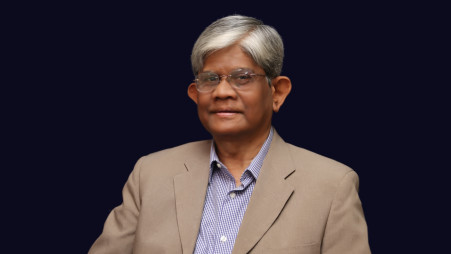Finance Adviser Dr Salehuddin Ahmed on Wednesday said the government remains hopeful about securing lower tariff rates for Bangladeshi goods in the US market, as both sides continue negotiations to rebalance trade ties.
“We’re trying our best. There’s still hope that the tariff in the US market will be eased,” he told reporters at the Secretariat after presiding over meetings of the Advisers Council Committee on Economic Affairs and the Advisers Council Committee on Government Purchase.
The Finance Adviser noted that the existing trade gap with the United States stands between $6.5 billion and $7 billion, adding that the government is considering increased imports of essential goods from the US to reduce the imbalance.
He said the Commerce Adviser will lead a delegation to Washington before 1 August for high-level discussions on tariff issues. The adviser is expected to meet with the Office of the United States Trade Representative (USTR), while separate diplomatic engagements are also underway.
“I am maintaining contact through my own channel,” said Dr Salehuddin, stressing that decisions are now being made rapidly at the highest levels of the US government.
He ruled out hiring lobbyists to influence policy decisions in the current context, stating, “Lobbyists won’t be effective at this stage.”
Asked whether Bangladeshi business leaders will be included in the talks, he clarified that the negotiations would be limited to official representatives, although business sector engagement remains important.
“We’ve spoken to the US Chamber of Commerce. They hold a positive view of Bangladesh,” he said.
On the procurement front, the government approved several purchase proposals during the day’s meetings, including deals for importing LNG and fertilisers such as DAP, TSP, and MOP from various international sources.
Dr Salehuddin also confirmed that Bangladesh will import wheat from the United States, citing diversification and quality as key reasons.
“The wheat from the US will have higher protein content and lower impurities. It also helps diversify our sourcing and supports our broader trade negotiations,” he explained.
The developments come ahead of a new tariff regime the Trump administration plans to implement from 1 August, targeting countries that do not offer reciprocal market access. The 35 per cent tariff on key exports, including garments, has raised concerns among Bangladeshi exporters, particularly after the sector shipped goods worth over $8.2 billion to the US last year.
In response, Bangladesh has agreed in principle to reduce tariffs on select US products and increase imports from the US as part of an ongoing negotiation framework.


